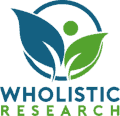Can You Take Nootropics While Pregnant?

With the rise of modern technology and advancements in medicine, many people wonder if they can take nootropics while they are pregnant.
While some women have considered taking nootropics for various reasons, there may be potential risks associated with their use during pregnancy and lactation.
With that in mind, we will discuss the evidence around taking nootropics while pregnant or breastfeeding to help make an informed decision about their use.
Are Nootropics Safe During Pregnancy?
The use of nootropic supplements during pregnancy can pose potential health risks to both you and your baby. While some nootropics may have benefits for pregnant women, the majority have not been tested on pregnant women, nor is much known about their safety and effectiveness during this time.
When it comes to taking nootropics while pregnant, it is always best to consult a physician or other healthcare professional first. Because there is still so much unknown about the potential effects of these products on a developing fetus, it is important to be cautious when considering whether or not these products should be taken while pregnant.
In general, it is recommended that pregnant women avoid all supplements in order to limit any potential risks for their developing baby. It may be possible for some types of supplements like Vitamin D and Omega 3 fish oil to be consumed in moderate doses in limited circumstances under the guidance and supervision of an obstetrician or other healthcare provider.
That being said, many physicians and healthcare providers agree that it is safest to completely avoid any nootropic drug compounds while pregnant because they haven’t been adequately researched or tested with regard to their safety profile during this timeframe yet. Additionally, certain substances like caffeine are known primary stimulants which should also be avoided by pregnant women due to the extra strain they put on the body at such a sensitive time period as well as potentially causing harm to the unborn baby itself.
One major concern with taking nootropics while pregnant has implications regarding changes in the mood of the mother-to-be. Many of these compounds act upon neurotransmitters available in different parts of the brain which regulate emotions such as anxiety or depression – making them potentially hazardous if their direct effects on mood were unknown until taken by a woman during this period.
Potential Benefits of Nootropics for Pregnant Women
The topic of using nootropics for pregnant women has been around the discussion boards recently and it is worth considering the potential benefits that these supplements can offer. Nootropics, also known as smart drugs, are a class of compounds that enhance cognitive performance and allow for greater levels of focus and alertness in healthy individuals. Although not extensively researched on pregnant women, there are several potential benefits to nootropics use during pregnancy nevertheless.
Improve Memory and Concentration
Nootropics have been shown to improve memory and concentration in healthy adults, and there’s some evidence that this may also be true for pregnant women as well. A recent study conducted on pregnant women who were given a combination of omega-3 fatty acids found improvements in their short-term memory recall capabilities. It’s possible that similar effects could be achieved with nootropic usage as well.
Reduce Stress
Pregnancy can be a stressful time for many different reasons. The physical upheaval caused by hormones is often coupled with worry about the health of the baby and fears about whether you’ll make good decisions throughout the process. Some nootropic supplements such as ashwagandha have been linked to reduced stress in otherwise healthy adults, which could prove beneficial for pregnant women who may struggle with mood swings or anxiety due to hormonal changes during pregnancy.
Increased Energy Levels
Despite fatigue being a common complaint among expectant mothers, some evidence suggests that certain nootropic supplements like Rhodiola Rosea can increase energy levels without causing harm to fetus development. This could prove invaluable in helping pregnant women stay relatively active during persistent periods of exhaustion while still ensuring her unborn baby stays safe.
Boost Brain Functioning
Some studies suggest that certain brain-enhancing compounds found within nootropic supplements like Aniracetam or Oxiracetam can enhance brain functioning without leading to any harmful side effects on unborn babies or newborn children. While extensive research has yet to be conducted in regards to this specific field, anecdotal evidence from those who have taken these substances suggests improved attention spans, better sleep patterns, improved overall wellbeing and enhanced cognitive functioning before birth.
Which Nootropics are Likely Safe During Pregnancy?
Below nootropics are possibly safe during pregnancy:
1. Alpha GPC
Alpha GPC is a choline-based supplement that helps to improve cognitive function. It has been used as a natural remedy for fatigue, memory loss, and cognitive decline. There is limited research on its use during pregnancy, but many health experts believe it can provide beneficial effects such as increasing mood and focus while reducing feelings of stress and anxiety.
2. Ashwagandha
Ashwagandha is an ancient herb that is known for its calming effects on the body and mind. Research suggests that it can reduce symptoms of depression and anxiety in women who take it during pregnancy. However, caution should be taken since too much ashwagandha can cause drowsiness or excessive sedation in some individuals.
3. Huperzine A
Huperzine A is an extract from a Chinese moss plant that helps enhance alertness, focus, learning capacity, memory storage, and recall ability. While there are limited studies exploring its use during pregnancy, some believe Huperzine A may have protective benefits for the mother’s brain during pregnancy. Women who take this supplement should take precautionary measures to avoid overdosing as too much Huperzine A may cause side effects like headaches or confusion.
4. Rhodiola Rosea
Rhodiola Rosea has been traditionally used as an adaptogenic herb to help reduce feelings of fatigue as well as improve mood by boosting serotonin levels – something particularly important for pregnant women dealing with body aches, hormonal fluctuations and stress throughout their pregnancy journeys. It’s effectiveness has yet to be proven through clinical trials so if you plan on taking Rhodiola Rosea make sure you consult with your physician about any possible side effects first.
Can You Take Nootropics While Breastfeeding?
Taking nootropics while breastfeeding is not recommended due to the lack of sufficient evidence regarding its safety for pregnant and nursing mothers. No controlled studies have been conducted to determine the effects of stimulants during pregnancy and lactation, so it is not advised to take any such drugs. Additionally, any undesired side effects should be reported to a doctor immediately and the supplement discontinued.
If one is considering taking any such supplement, professional advice should be sought first. Some small studies have shown that some nootropic supplements can affect the brain of breastfeeding women positively, but there is not enough evidence from large, controlled studies to support their safety during pregnancy or breastfeeding.
Conclusion: Is it Safe to Take Nootropics While Pregnant?
It is generally not recommended to take nootropics while pregnant, as there is a lack of evidence from large, controlled studies to show that they consistently work and are completely safe. Some natural supplements, such as Black Cohosh, Goldenseal and Vinpocetine, have been found to have adverse effects on pregnant rats. Therefore, it is best to avoid these types of nootropics during pregnancy, except when they are necessary for medical reasons.
